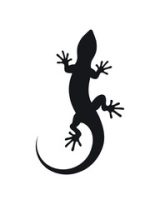I wandered the streets of a big city, waiting for a friend to arrive. Behind the main public library, I noticed an open-air patio filled with books stacked in large cupboards. Tables and chairs were set out for anyone willing to pause and read a few pages. It was already dark; the lanterns glowed softly, casting enough light for reading. I decided to browse through the selection — mostly old books from another era. I picked a few that seemed faintly interesting and sat down. I had nothing else to do, anyway.
A young policeman hurried past me, something clutched in his little hand. I greeted him and wondered what had him so animated. Policemen in this part of the world are not known for being easily excitable. He held a napkin with something inside. Turning to me, he said, almost to himself, “It’s damaged… it got under the foot of a child. I wonder if it will live on.”
I stood to talk with him. He looked genuinely concerned — a large police cap sitting awkwardly on his small, still-boyish head. His round face and dark eyes were strikingly gentle. This was not the kind of policeman I was used to seeing on these streets. In his hands lay a nearly dead lizard.
He told me he was twenty-one. He had fought in the war. Trained as a sniper for fourteen months before being sent into combat. In the thick of a battle, he had killed — many, according to his own words. Some he had even tortured. “They weren’t human,” he said.
The war had left its marks — on his body and his mind. “I wish I had died,” he declared solemnly, with a touch of drama that is not foreign to all of us when we were young. “My body hurts every day. I’ve still got bits of grenade in my arms and feet. I fought like a hero.” He showed me the scars on his hands. “I used to weigh eighty-six kilos. Now I’m thin.”
He spoke quickly, as if trying to empty himself of too many words hidden in his chest.
“I get angry easily. I can’t control myself. I work long shifts — sometimes sixteen hours, sometimes twenty-four. One day on, two off. Ten days a month.”
Then, softening, he added, “I’m calm when I’m with animals. They never betray you. I love them.”
He told me he had four dogs and fifty doves. “And now this lizard… I couldn’t let it suffer. I wanted to kill it, to spare its pain. But I couldn’t do it. Funny — I killed so many people without hesitation.”
What is it that makes a human kill other humans without pause, yet tremble at the suffering of a lizard stepped on by a child? What’s lost in war is not only the humanity of the “enemy,” but the humanity of all of us. This young policeman no longer trusted people — not even those he called his own. Instead, he sought comfort among animals, whose loyalty and innocence he could still trust. And what a treasure it is, to find companionship in other species — to give care and receive it back, not wary of betrayal.
Much time has passed since I wrote down these notes, unsure how to begin this story or whether it was even worth sharing. Then, I came across a poem — “Kiss” by Ellen Bass — shared by Maria Popova. It reminded me that the capacity to care, for animals and for each other, is still within us. And in a world so steeped in dehumanization and war-making, may we never forget that.
When Lynne saw the lizard floating
in her mother-in-law’s swimming pool,
she jumped in. And when it wasn’t
breathing, its body limp as a baby
drunk on milk, she laid it on her palm
and pressed one fingertip to its silky breast
with just about the force you need
to test the ripeness of a peach, only quicker,
a brisk little push with a bit of spring in it.
Then she knelt, dripping wet in her Doc Martens
and camo T-shirt with the neck ripped out,
and bent her face to the lizard’s face,
her big plush lips to the small stiff jaw
that she’d pried apart with her opposable thumb,
and she blew a tiny puff into the lizard’s lungs.
The sun glared against the turquoise water.
What did it matter if she saved one lizard?
One lizard more or less in the world?
But she bestowed the kiss of life,
again and again, until
the lizard’s wrinkled lids peeled back,
its muscles roused its own first breath
and she set it on the hot cement
where it rested a moment
before darting off.
